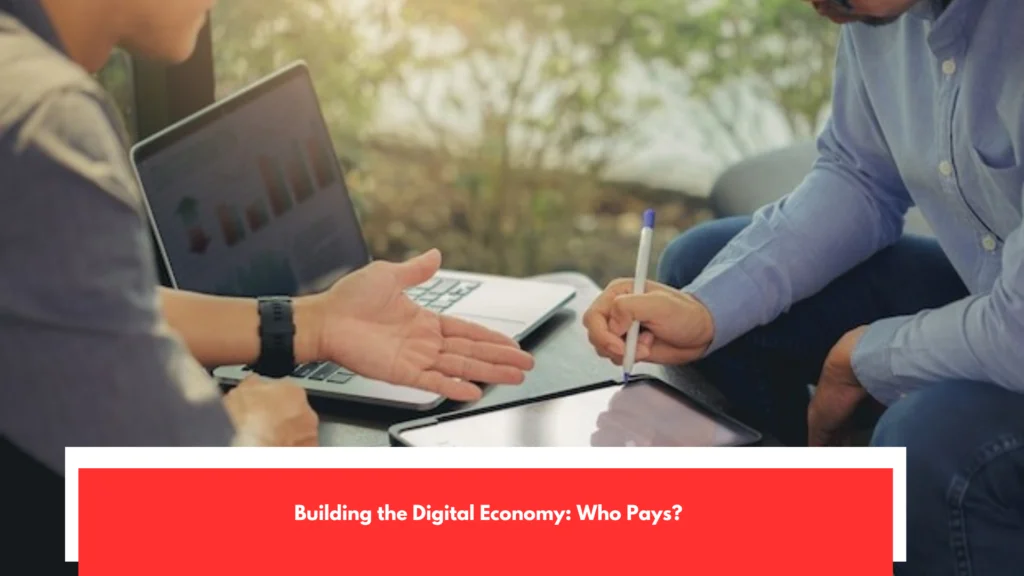The digital economy can be regarded as buzzword with no precise meaning. The digital economy implies that our economy is becoming more and more digital, i.e., the purchase and sale of goods and services over the Internet or transacting business virtually rather than having to do it all face to face. Accepting restaurant orders online, selling handmade items on a website, or meeting with employees virtually are all part of Building the Digital Economy.
The most important elements of changing to a digital economy as a company are the possibility to accept payment cards where the sales will be possible online. This will help enhance payment security in your company in terms of both accepting and managing finances using mobile and online applications. The more an economy turns into a digital one the harder it is going to be to remain competitive against other businesses that are instituting digital changes in their organizations without adapting an element of the digital economy to the business.
Making technology work for everyone

In case your restaurant will be cash-only, or will not take the orders online, you risk to lose the orders of consumers who seek safer and convenient payment terms. In particular, as 74 percent of consumers intend to use contactless payment options in the post-pandemic time; adjusting to the demands of consumers is a way of ensuring that your company thrives in the long term.
Digital technology has assisted individuals in teleworking, in teaching the kids, and in relocating the transfer of goods and services to the virtual domain. Some have found the Internet to be a necessitating resource, both in terms of consumer and business needs, as a result of COVID-19, which necessitates a stronger concern on digital equity than before. A study conducted by Erika Poethig as a director.
The next engine of growth

That is due to a long history of economic and racial segregation, Poethig explained. Create a more equal economy, especially the economy in the pandemic world and after-pandemic time, more Internet penetration of communities and increased enablement of BIPOC (Black, Indigenous, and People of Color) consumers and businesses so they can be a larger component of the digital economy will need to be implemented.
To find out more about the digital economy and how it can potentially impact racial and geographical inequity in post-pandemic life, consult this piece by the Center of Inclusive Growth on Mastercard. The digital economy is an economy where software as a service (SaaS) matters in business operation and economic activities. SaaS offers the solutions with a software distribution model and is a part of modern economy. Being a subscription billing model in the cloud, the concept assists in the cooperation and innovations in any global market, including healthcare, educational, and e-commerce.
Seizing the opportunity

Transforms the conventional business approaches. In as much as SaaS has numerous benefits, organizations should note that data security and vendor reliance are some of the issues that they should bear in mind when adopting SaaS solutions. The digital economy Any economic activity in the online ecosystem between individuals, businesses, devices, the data, and processes connected online is referred to as the digital economy.
This enables easy interaction with the companies which is changing the frameworks of businesses and customer goods in the retail business, banking sector and entertainment of all industries. The digital economy highly depends on digital business and digital technologies unlike the traditional economy where all things substantial deal with physical business and goods. In comparison to the traditional economy, the digital one is much.
Conclusion

More dependent on the digital platforms, social media, SEO, and online marketing; unlike in the past, the traditional economy uses conventional advertising principles. A change to the traditional firms is the digital economy that includes online services and fintech solutions and could have an impact on efficiency, global reach, and innovation. The economies are becoming more interconnected, with traditional firms using digital capabilities to a greater extent in order to beat competition. Nevertheless, digital transformation presupposes a huge investment and accommodating wise. Conclusion
Digital economy has acquired relevance among the businesses of today and this might affect the span and output of businesses. It augments the competitive position of organization by enabling access to customers in new channels, adjusting operations attached to their business, splitting the costs and creating the capability of creating new source of revenue. It has an influence on competitiveness in terms of variations in service delivery, the work of the private sector and the administration.
